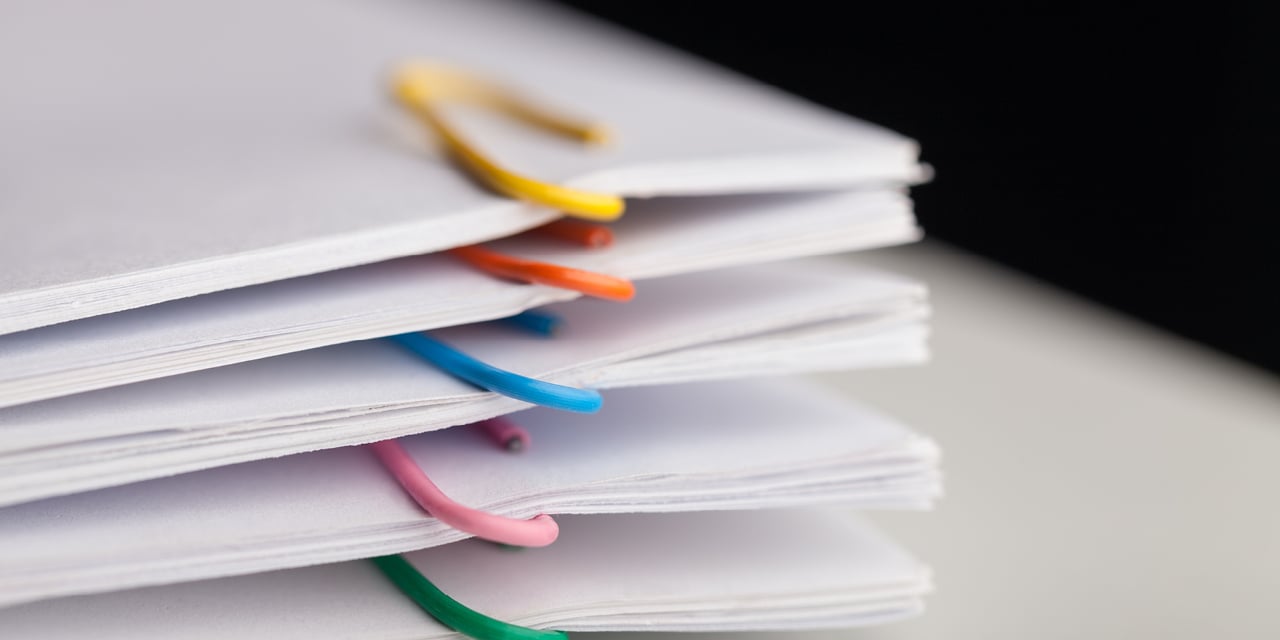
Take the Headaches Out of Tax Season
Nobody likes tax season – OK, let’s just go ahead and say that everyone dreads tax season. But there are some simple steps you can take to reduce the headaches, and to make things easier on your CPA. As we approach April 15, here are some ways to make your tax season go more smoothly, protecting yourself along the way:
Be Early
Assemble your documents and deliver them to your CPA as early as you can. This lets them work without the deadline pressure of Tax Day, meaning less chance for errors and more time to identify ways to minimize your tax bill. And if there’s an issue you need to correct before you file your return, you’ll have plenty of time to do so.
Every year, Baird sends a schedule of when you can expect to receive your documents – some 1099s by February 15, and for accounts with more complex products by March 15. By delaying the delivery of the latter, our correction rate for tax documents is less than 5%, compared to significantly higher rates for other firms in the industry.
Use Your CPA's Questionnaire
There’s a reason they want you to fill out their specific form, tedious though it may be. It is designed to ensure you don't forget anything important, and to prevent scrambling on your part as you reach the end of the process. And be sure to review all the questions they ask; things change from year to year, and those answers can help avoid any misunderstandings or missed opportunities.
Be As Complete As Possible
Try to send all your data to your CPA at once, rather than in pieces every week or two, and include every page of your tax documents as those extra pages often contain important details. Remember to assemble all the paperwork that isn’t necessarily standard tax documents, such as confirmation letters for charitable donations.
Keep Your Old Files on Hand
You generally want to keep tax documents for three years, since that’s the limit for filing an amended return. For example, the deadline to amend your 2021 return is April 15, 2025, or later if you extended that return. If you’re reporting unique transactions such as a like-kind exchange or bad debt deduction, keeping seven years of records is recommended.
Shorter-term documents can be kept for less time. Keep your monthly statements until you get the annual summary statement, for instance, and your annual statements until you sell the positions or close the account. But keep your old tax returns for as long as you can.
Avoid Making Your Own Summary Schedules
Let your accountant add up all the figures and complete your IRS schedules for things like freelance income. If you complete these yourself and they don't match the original documentation, your CPA will need to take time to reconcile the differences, ultimately slowing the process and increasing your fee.
Don’t Be Afraid to Extend
If you are delayed in providing your information, be prepared to file an extension. But don’t worry – that extra time will help your tax preparer do the best job they can, rather than rushing and possibly missing something. And no, an extension won’t increase your risk of an audit!
Take Steps to Avoid Identity Theft
Tax season is also prime time for identity thieves to try to access your personal financial information. Ignore texts, emails, social media messages or even phone calls claiming to be from the IRS. If there are issues with your return, the IRS will send you a letter, and they will never demand immediate payment using a specific method, such as a prepaid debit card, credit card, gift card, wire transfer or mail order.
When downloading any tax documents, make sure to save them in a secure location. If any tax information is emailed to you, delete the email from your inbox and deleted items folder after you’ve saved them elsewhere. This will protect your information if you are a victim of a phishing email in the future.
Lastly, consider applying for an Identity Protection PIN, which is a six-digit number known only to you and the IRS to prevent anyone else from filing a tax return with your information.
Additionally, Baird has partnered with ID Watchdog, an industry-leading identity protection service provider, to offer clients and their families added protection at a discounted rate. Talk to your Baird Financial Advisor to learn more about ID Watchdog.
Bonus: Plan Ahead
Maintaining good records and approaching tax season efficiently can have another benefit – being proactive and comprehensive can help you minimize your taxes. Your Baird Financial Advisor can play a key role here, working with your CPA to develop tax strategies that can pay off now and well into the future. And once you’re finished, it makes sense to provide your advisor with a copy of your return in preparation for next year.
Editor’s Note: This article was originally published January 2023 and was updated November 2024 with more current information.
This information has been developed by a member of Baird Wealth Solutions Group, a team of wealth management specialists who provide support to Baird Financial Advisor teams. The information offered is provided to you for informational purposes only. Robert W. Baird & Co. Incorporated is not a legal or tax services provider and you are strongly encouraged to seek the advice of the appropriate professional advisors before taking any action. The information reflected on this page are Baird expert opinions today and are subject to change. The information provided here has not taken into consideration the investment goals or needs of any specific investor and investors should not make any investment decisions based solely on this information. Past performance is not a guarantee of future results. All investments have some level of risk, and investors have different time horizons, goals and risk tolerances, so speak to your Baird Financial Advisor before taking action.


